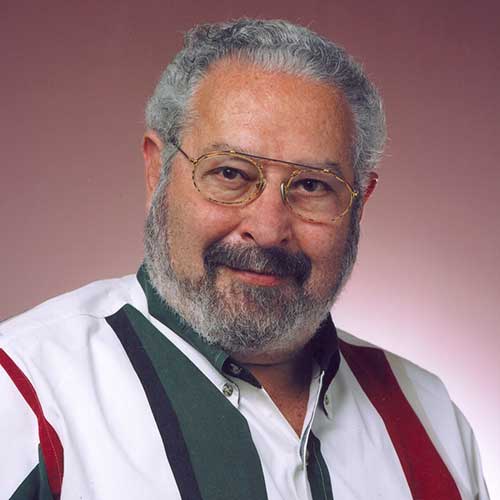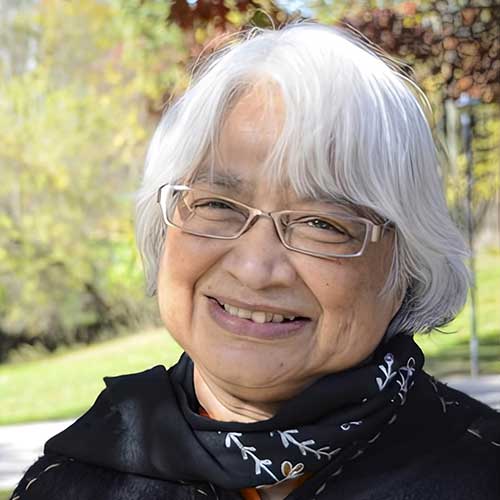2003
Expandable List
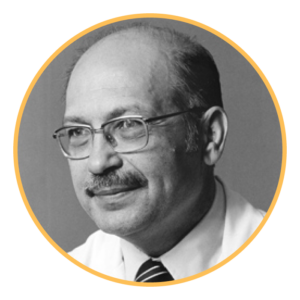
John Basmajian, MD, is internationally recognized as a leader in the field of rehabilitation science, specifically in the area of electromyography. At McMaster he was a professor of medicine with a joint appointment to biomedical sciences from 1977 to 1986. Well known as a pioneer of biofeedback, a technique widely used in rehabilitation, he is also the inventor of several medical devices. The author or editor of 66 books and nearly 400 scientific articles, Basmajian has been a mentor to many students, physiotherapists and physicians.

May Cohen, MD, worked to promote the equality and well being of women, both as providers and beneficiaries of health care. She joined the Department of Family Medicine in 1977 and was associate dean, Health Services from 1991 to 1996. As an educator, researcher and clinician, she sought to raise awareness of gender and equity issues in medicine. Cohen has been highly regarded for combining caring with passionate activism to improve the lives of women. Her legacy continues with the annual May Cohen Lectureship in Women’s Health and the Eli Lilly May Cohen Chair in Women’s Health.
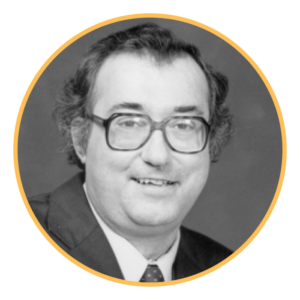
Jerry Dolovich, MD, founded the Division of Allergy and Immunology at McMaster and was a professor of pediatrics from 1968 to 1997. Credited with important discoveries in the diagnosis and treatment of asthma and allergies, he had a worldwide influence in his specialities. He was a humane and compassionate clinician, who made patient care and patient education top priorities in both his research and teaching. In 1990, Dolovich wrote the first Canadian Asthma Guidelines. In 1997, he was named distinguished clinician by the American Academy of Allergy, Asthma and Immunology.
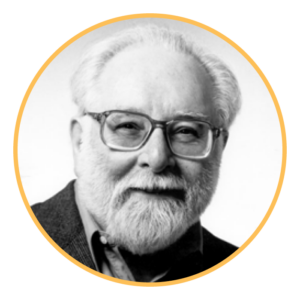
Murray Enkin, MD, brought care and compassion together with a progressive attitude to advocate change within the field of obstetrics and gynecology. He joined the Faculty of Health Sciences in 1965 and taught until 1988. Enkin sought valid evidence for the improvement of childbirth practices and an increase in options for pregnant women. His broadminded views led him to be an early supporter of midwifery education and practice. Enkin co-wrote the internationally published and widely read reference book, A Guide to Effective Care in Pregnancy and Childbirth.

John Evans, MD, was appointed founding dean of McMaster’s Faculty of Medicine in 1965, serving until 1972. Under his leadership, a group of innovative educators began developing an undergraduate medical program that defied convention by emphasizing self-directed learning. Evans pioneered the problem-based learning curriculum that influenced health care education worldwide and became the hallmark of McMaster’s integrated Faculty of Health Sciences. Evans also made significant contributions as an international health adviser and researcher, conducting a global study of public health and population-based medicine in 1979 and chairing the international Commission on Health Research for Development in 1988.
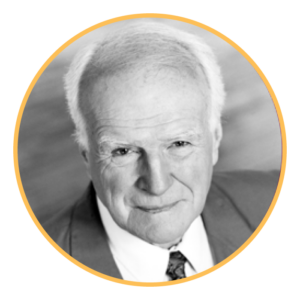
J. Fraser Mustard, MD, joined the Faculty of Health Sciences in 1966, becoming involved in developing both the medical school curriculum and its research capability. From 1972 to 1982 he was dean and vice-president, and during that time he was responsible for the School of Nursing assisting in the development of nursing at Aga Khan University in Pakistan. His influence extended beyond the University with contributions to research and health care policy. He is world-renowned for his work on platelets, vessel injury and the effect of aspirin. In 1982, Mustard founded the Canadian Institute for Advanced Research.
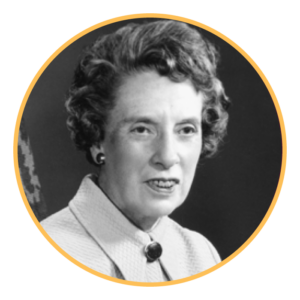
Alma Reid, PhD, was director of the School of Nursing from 1949 to 1970. During this time her dedication and vision lead the school to great change. As well as increasing enrolment, she was instrumental in integrating the School of Nursing into the Faculty of Health Sciences, fostering the interdisciplinary spirit at McMaster. Reid promoted nursing within McMaster, as well as nationally and internationally, taking leadership roles within many professional organizations. As a teacher, she is known for encouraging self-direction and valuing personal differences.
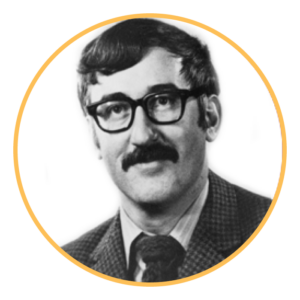
David Sackett, MD, founded Canada’s first Department of Clinical Epidemiology & Biostatistics and chaired the Division of Internal Medicine. At McMaster from 1967 to 1994, he developed and mentored a new breed of applied clinician-scientists and worked with them to create and disseminate evidence-based medicine throughout the world. His collaborative research teams were the first to validate the efficacy of aspirin and carotid endarterectomy for patients with threatened stroke, to develop effective strategies for helping hypertensive patients and to generate compelling evidence of the effectiveness of nurse practitioners.
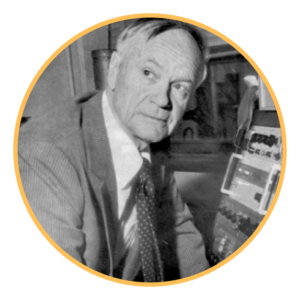
Henry (Harry) Thode, PhD, was president of McMaster from 1961 to 1972. Under his guidance, McMaster became what it is today; respected worldwide for groundbreaking research and excellent education. His vision and leadership allowed for the innovative approach of the medical school, and later, the development of the Faculty of Health Sciences. Thode also initiated the construction of the Health Sciences Centre. As a scientist, he is known for his contributions to the field of atomic energy. As a leader, he is known for his commitment and devotion to McMaster.
2004
Expandable List
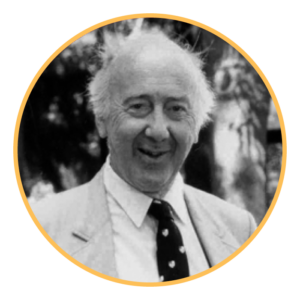
Moran Campbell, MD, was the founding Chair (1968-1975) of the Department of Medicine for McMaster’s medical school, to which he remained dedicated for his lifetime. As a scientist, physician and educator, he was recognized internationally as the foremost respiratory physiologist of his generation, with distinctions including Officer of the Order of Canada. Dr. Campbell’s innovation and dedication to the pursuit of excellence in research and education had a profound effect on the development of knowledge and practices in the treatment of respiratory illness. His iconoclastic and mercurial style was a delightful mix of erudition, joie de vivre and dedication to the art and science of medicine.

Susan French, RN, PhD, is recognized as a nursing leader who, during her 31 years at McMaster, helped transform nursing practice, research and teaching in North America. As Associate Dean of Health Sciences, Nursing, from 1980 to 1990, Dr. French guided the school to its status as one of Canada’s most respected nursing schools. She played a key role in the development of a national accreditation program for undergraduate nursing. Her impact in capacity-building spread her influence internationally, beginning with multi-phase projects which developed nursing programs in Third World countries.
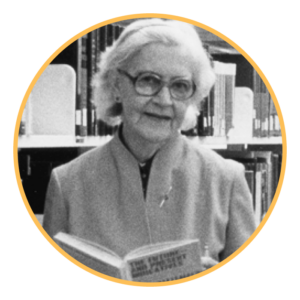
Beatrix Robinow, BA, was McMaster University’s first Health Sciences Librarian, playing a leading role in designing and establishing a library that would serve as the heart of the fledgling Faculty of Health Sciences. She joined McMaster in 1966 and, until her retirement in 1982, was known for her enthusiasm, creativity and skill in overseeing a library that became the focal point of the health sciences community. She also took a leadership role in the international Medical Library Association. The continual growth of the highly-respected Health Sciences Library and the establishment of a Library Enrichment Fund in her name are testaments to her contributions.
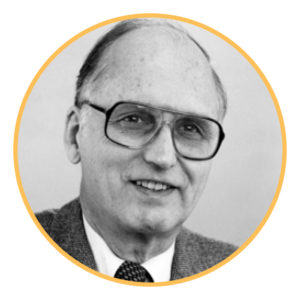
William Spaulding, MD, was one of the pioneers who developed the innovative medical school launched at McMaster University. As the Associate Dean of Health Sciences from 1965 to 1970, he was pivotal in developing the self-directed, problem-based approach to learning that today is used around the world. After his 1987 retirement, he co-authored the book Revitalizing Medical Education: McMaster Medical School – The Early Years, capturing the excitement and challenges of the Faculty of Health Sciences’ early history.
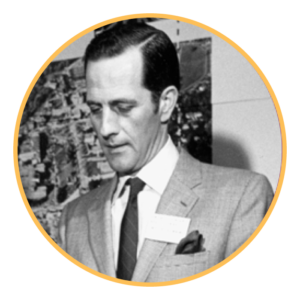
William Walsh, MD, was a pillar of the new medical school and an integral part of the Faculty of Health Sciences from his appointment as the Assistant Dean of Medicine in 1965 to his retirement in 1990. As one of the founders of the medical school, he was instrumental in developing its revolutionary curriculum. His reputation as a leader in the medical community helped the school gain acceptance among area health professionals. He held various leadership posts including Director of Continuing Medical Education and Associate Dean of Education. A creative and pioneering educator, Dr. Walsh fostered commitment to the discipline of medicine.
2005
Expandable List
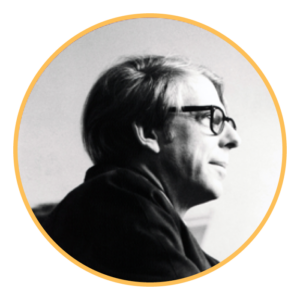
James Anderson, MD, was the founding chair of the Department of Anatomy (1966-1975) and a member of the Faculty until 1988. He helped develop the unique educational programs of the Faculty of Health Sciences. Known for his appreciation of the principles of self-directed learning, his expertise in both anatomy and anthropology, as well as a sharp wit, he engendered admiration and affection among colleagues and students. His skill as a charismatic educator and tutor extended beyond the University to leadership roles in the community, including the launch of Cool School, an alternative school for Hamilton youth. He was honoured as Hamilton’s Citizen of the Year in 1974.
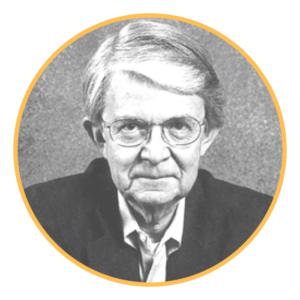
Howard S. Barrows, MD, made an indelible mark on the now-renowned problem-based learning method developed at McMaster’s medical school. As a visiting professor, then a faculty member from 1971 to 1980, Dr. Barrows pioneered educational tools and learning methods that have defined modern medical training. His innovations included standardized patients and performance-based testing. His creativity in a career that spanned more than 40 years is internationally recognized and continues to influence the training of health care professionals at institutions world-wide.
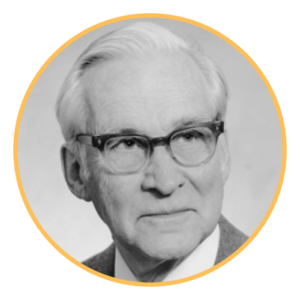
C. Barber Mueller, MD, came to McMaster University as the founding Chairman (1967-1972) of the Department of Surgery during the formative years of the university’s medical school. His vision was influential in the development of the McMaster philosophy of medical education. His exemplary skills as a surgeon, combined with a devotion to teaching in a kind, thorough manner, earned him many academic and professional honours during a 45-year career. Dr. Mueller’s dedication and contributions to knowledge, education and clinical care have created a legacy at McMaster and helped set the standards of modern surgery.
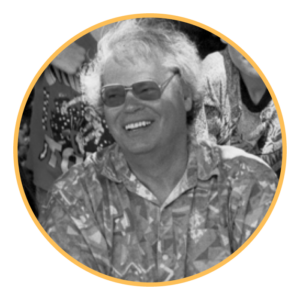
David R. (Dan) Offord, MD, was one of the world’s authorities on child psychiatry and a passionate advocate for children and youth. As a professor at McMaster (1978-1999), and through his many leadership roles in children’s mental health research and treatment, he displayed scholarship and practical clinical concern for all children while maintaining an affable demeanor. Dr. Offord earned many distinctions, including the Order of Canada, and established the Faculty of Health Sciences as an international leader in child psychiatry research. The Offord Centre for Child Studies at McMaster University was named in honour of its founding director.
2006
Expandable List
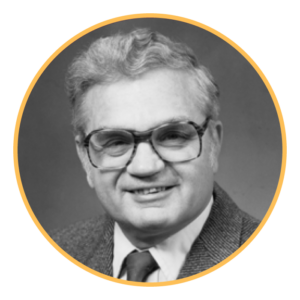
Edwin E. Daniel, PhD, cultivated and nurtured students to become leaders in education and research around the world during his career as a professor at McMaster University. From 1975 until after he became professor emeritus in 1994, he was an admired teacher and mentor of students from a wide range of disciplines, dedicated to the problem-based learning model and instrumental in exporting it to campuses around the world. Internationally known for his groundbreaking work on smooth muscle function, he was a brilliant scientist whose breadth of knowledge and critical thinking ability led to many achievement awards, including being named a Fellow of the Royal Society of Canada.
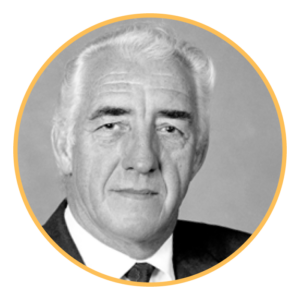
Michael Gent, DSc, one of the world’s leading biostatisticians, was a founding member of the Department of Clinical Epidemiology and Biostatistics and served as its chair from 1973 to 1979. During his 33 years at McMaster beginning in 1969, he built the university’s international reputation as a pre-eminent site in clinical trials. A leader in shaping health care research, he demonstrated remarkable research productivity, conducting trials and publishing results that changed the global practice of health care. He has been considered an inspiring teacher, a rigorous scientist, and a leader demonstrating charm, wit and honesty. He became professor emeritus in 2002, and contributed to future developments in his field by establishing the Michael Gent Professorship in Healthcare Research.

Ludmila (Niky) Melichar, MA, first played a key role in the development of the Faculty of Health Sciences as the hospital’s lead in the building of the McMaster University Medical Centre, a unique facility combining hospital, research and education roles. Joining the Faculty as an administrator in 1973, her portfolio ranged from managing the biomedical research office and facilities, to the construction of several major buildings on campus and strategic planning. As an assistant professor (part time), she taught organizational behaviour. Her leadership, wisdom, negotiating skills and integrity influenced faculty, staff, and students. She retired three times, in 1994, 2000 and 2005, as her extraordinary talent and understanding of the complexities of organizations continued to be sought for special projects.

George Torrance, PhD, became a world leader in the economic evaluation of medical treatments and health services during his 30-year career at McMaster which began in 1967. With expertise in both health sciences and business, he was a pioneer in the development and application of methods to improve health care decision-making. He helped revolutionize the science and practice of assessing health status and determining the quality of life, and played an essential role in the Faculty’s reputation as a world leader in population health sciences. An outstanding teacher, colleague and mentor, he contributed to the career development of multiple generations of clinical and health services researchers.
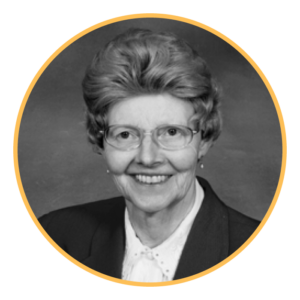
Karin C. von Schilling, MScN, a professor in the School of Nursing from 1968 to 1988, influenced the move to multidisciplinary, problem-based education of health care professionals both at McMaster University and internationally. Known for upholding the highest standards for education and service, students sought her wisdom and assistance to enhance their learning. She also brought McMaster’s expertise to Germany, Austria and Sweden, promoting multi-professional team-building and introducing problem-based learning. A strong advocate for children, she was instrumental in the implementation of family-centred, multidisciplinary child care in Hamilton, and was the first School of Nursing professor to be cross-appointed to the Department of Pediatrics.
2007
Expandable List
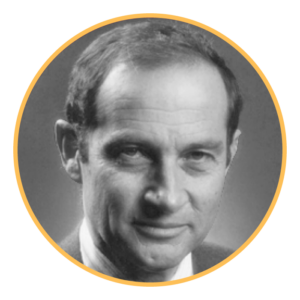
Oded Bar-Or, MD, dedicated his life to helping children develop healthier lifestyles. As a visiting professor, then professor of the Department of Pediatrics from 1981 through 2003, he earned worldwide renown as the father of pediatric exercise science. In 1983 he established the world’s first Children’s Exercise and Nutrition Centre at McMaster, laying the groundwork for revolutionary work combining science and clinical applications in the field of childhood exercise, nutrition and obesity. Also known as a gentle soul and gifted mentor, his distinguished accomplishments led to many awards and honours, including honorary degrees from three universities.

Bernie O’Brien, PhD, was a pre-eminent health economist who established McMaster University as a world leader in assessing the benefits and costs of health care interventions. Before his untimely death at the age of 44, he had an illustrious career as a professor and researcher, garnering national and international awards in recognition of his pioneering accomplishments in developing new methods for economic evaluation in health care. A professor in the Department of Clinical Epidemiology and Biostatistics from 1990 to 2004, he was a passionate teacher and a gifted collaborator with a distinct talent for building bridges for shared research programs between academic, clinical and industry interests.

Jack Sinclair, MD, brought evidence-based medicine to the field of neonatology. A respected scholar of medicine, skilled clinician, and inimitable mentor, Dr. Sinclair was a professor of pediatrics at McMaster University from 1970 until retirement in 1999. He built Hamilton’s neonatal clinical care and training programs, and introduced rigorous evaluation of the care provided to premature and seriously ill newborns. His leadership led to standards of excellence in neonatal research and care that are recognized and practised around the world. In tribute, an endowed chair in neonatology has been established in his name at McMaster University.
2008
Expandable List
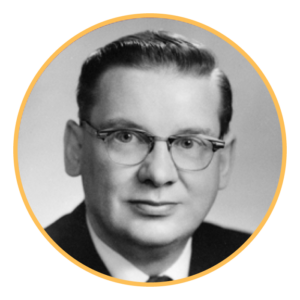
Arthur Bourns, Phd, played an integral role in the founding of McMaster’s medical school by translating McMaster President Harry Thode’s vision into a plan of action. In 1963, the chemistry professor wrote the detailed briefs to the provincial government advocating for a McMaster medical school and a unique university hospital. He continued his active support of the fledgling school during his tenure as president of McMaster University 1972 to 1980. Dr. Bourns has been recognized internationally for his research in physical organic chemistry and for contributions to science policy. The recipient of five honorary degrees, he was appointed to the Order of Canada in 1982.
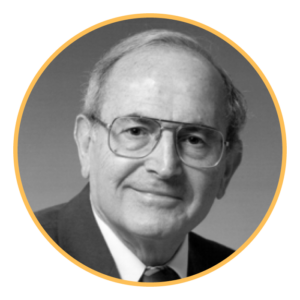
Jack Hirsh, MD, is an internationally renowned medical researcher who pioneered the investigation and treatment of deep-vein thrombosis, and his basic and clinical research has led to safer, more effective anticoagulants. He joined McMaster in 1970 and served as chair of the Department of Medicine from 1981 to 1988. A tireless mentor, his students have become health care leaders throughout Canada and around the world. Since becoming a professor emeritus in 1994, he has been named a member of the Order of Canada, a Fellow of the Royal Society of Canada, been inducted into the Canadian Medical Hall of Fame and won the Gairdner Foundation International Award for Achievement.
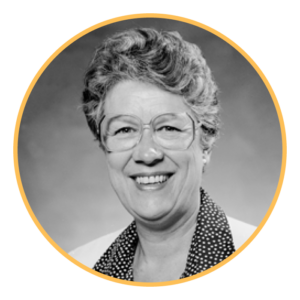
Helen Saarinen-Rahikka, MHSc, was a physiotherapist and educator with an international reputation as a leader in physiotherapy. As inaugural chair of the Physiotherapy BHSc program (1989-1992), she pioneered an innovative, problem-based curriculum, the first of its kind in the world. She taught for 24 years (1972-1996) as the program evolved from a diploma at Mohawk College to a master’s degree at McMaster University. Known for her ability to recognize potential and facilitate excellence, she encouraged and mentored two generations of students and physiotherapy clinicians. The Helen Saarinen Lectureship is held annually in her honour in the School of Rehabilitation Science.
2009
Expandable List
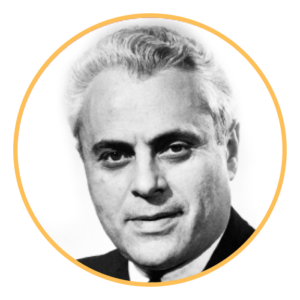
Nathan B. Epstein, MD, was the founding chair of the Department of Psychiatry (1967–1975), during the early years of McMaster’s medical school. He established a spectrum of academic clinical services at McMaster’s partner hospitals and shifted the direction of psychiatric care in Hamilton by brining mental health services to the community. Known for his charismatic personality, dynamic leadership and innovative ideas, Epstein fostered a collaborative approach to education and treatment in psychiatry, mentoring the next generation of research psychiatrists as well as family doctors. He is recognized through the world as a pioneer of family therapy.
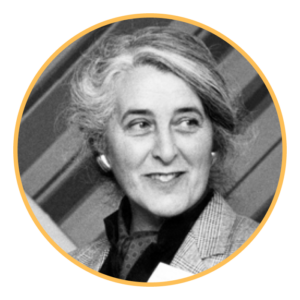
Barbara Ferrier, PhD, made outstanding contributions to the advancement of medical education at McMaster through her commitment to teaching, enthusiasm for research and expertise in curriculum development. She joined the Department of Biochemistry in 1972 and remained a dedicated faculty member long after her appointment as a professor emeritus in 1998. Over the years, her research interests evolved from biochemistry to innovations in medical education. She contributed to the development of the MD COMPASS curriculum, and as director, included problem-based learning in the University’s Arts and Science program. An insightful tutor, Ferrier is remembered for her ability to inspire excellence in her students.
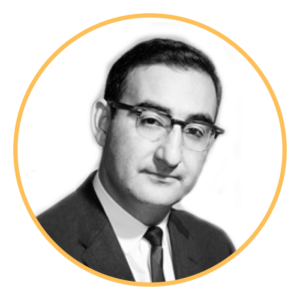
Alvin Zipursky, MD, served as the founding chair of the Department of Pediatrics from 1966 to 1972 and 1978 to 1981. Through his leadership, commitment to excellence and passion for research and education, he developed a pediatric department of major importance regionally, nationally and internationally. Zipursky is recognized worldwide for his seminal work on the prevention of Rh disease and for his contributions to basic and clinical research during a career spanning more than 50 years. He has continued to be an international leader in the development of global programs in hematology, oncology and pediatrics.
2010
Expandable List
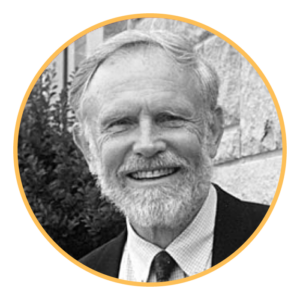
Norman L. Jones, a physiologist and clinician scientist, arrived at McMaster in 1968 from the United Kingdom with his friend and colleague, Moran Campbell. They transformed McMaster into an international powerhouse for research, education and clinical programs in respiratory medicine. Dr. Jones became renowned for his development of the science of exercise physiology.
With his quiet style, scholarly approach and strong leadership, he served as a mentor and a role model, inspiring the next generation of clinician-scientist leaders. He retired as professor emeritus in 1991.
Dr. Jones was founding editor of the Canadian Respiratory Journal, which established an annual award in his honour.

Karyn Kaufman helped establish midwifery as a regulated health profession in Canada and served as the inaugural assistant dean of McMaster’s midwifery education program from 1993 to her retirement in 2006.
With an education in nursing, midwifery and public health, she arrived in Hamilton in 1972 and worked first as a clinical nurse specialist, later becoming a professor in McMaster’s Department of Family Medicine. She was appointed by the Minister of Health to a task force on the implementation of midwifery in Ontario and then she established the first midwifery education program in Canada.
Her visionary leadership and advocacy have resulted in safe, effective and compassionate midwifery care across the country.
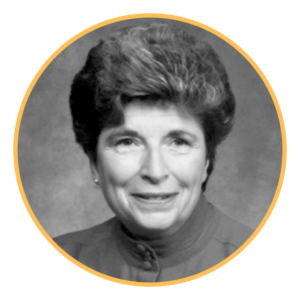
Ruth Snider developed internationally recognized standards for the psychosocial care of children in hospital and established Canada’s first education program in child life studies.
The founding director of the clinical child life program at the McMaster University Medical Centre, she joined the Department of Pediatrics as a clinical lecturer in 1977 and retired as an associate clinical professor in 1992.
Graduates of her postgraduate child life diploma program work around the world, improving the lives of children by giving them a voice during their illness.
A tireless advocate, she was instrumental in establishing the Canadian Association of Child Life Leaders. Her awards include the Child Life Council’s Distinguished Service Award.
2011
Expandable List

Frederick E. Hargreave, MD, known to everyone as Freddy, was a world-renowned respirologist who helped change the way asthma is diagnosed and treated through research driven by the clinical needs of his patients. For more than four decades after joining McMaster in 1969, the brilliant clinical scientist developed tests to measure airway responsiveness and inflammation that became the gold standard. A founder of the Firestone Institute for Respiratory Health, he was a superb mentor who trained many of the world’s current leaders in asthma research. He became professor emeritus in 2004, but remained active in research. He was also held in the highest regard by his patients.
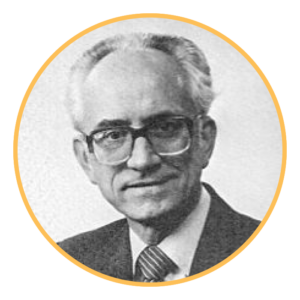
John Thomas, PhD, pioneered the development of health care ethics in the Faculty of Health Sciences and he was instrumental in establishing the discipline at both the national and international levels. The philosophy professor was involved with the medical and nursing schools for more than three decades and he was officially an associate member of the Faculty from 1985 until his retirement in 1991. Thomas created undergraduate courses in health ethics, served on ethics committees and profoundly impacted clinicians, policy-makers and patients through his scholarship, consultations and teaching. A quiet, wise, gentle leader, Thomas brought out the best in his colleagues and students.
2012
Expandable List
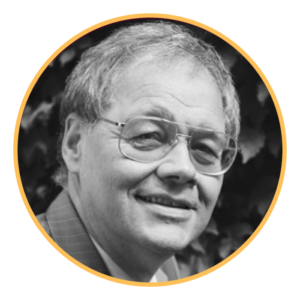
Gerhard Gerber, PhD, was a biochemistry researcher and professor who became an entrepreneurial visionary in developing McMaster as one of Canada’s top research intensive universities. He joined McMaster in 1978 and created an innovative co-op educational program while chair of the Department of Biochemistry for five years from 1991. However, it was during his term as McMaster’s vice-president research and international affairs from 1996 to 2001 that he attracted significant new federal funding, established important research infrastructure and created a culture stressing the economic and social value of research that still impacts the Faculty of Health Sciences and the University. He became a professor emeritus in 2007.
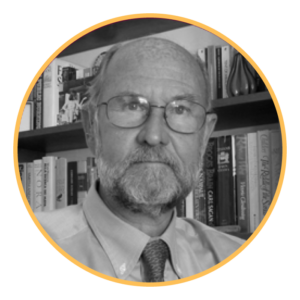
Frank Graham, PhD, developed an international reputation for himself and McMaster University with his pioneering developments in the field of gene therapy and his reputation for innovation and excellence in molecular virology. He joined the cancer research group of the departments of pathology and biology in 1975 and became one of the most cited scientists in biology for his work defining mechanisms of cancer transformation caused by adenoviruses. Renowned as an effective mentor and collaborator, accolades include being named a McMaster Distinguished University Professor and a Fellow of the Royal Society of Canada. The professor emeritus retired to Italy in 2003.

John Sellors, MD, was a graduate of the first class of the Michael G. DeGroote School of Medicine at McMaster in 1972 who went on to exemplify the impact primary care physicians can make locally, nationally and globally. A Stoney Creek doctor for 22 years, he was a faculty member in family medicine at McMaster from 1979 to 2011, including a term as the department’s director of research. He was internationally known for his work in reproductive health, particularly cervical cancer prevention. An exceptional researcher and educator, he used his sense of humour to bring people together. He was also responsible for building new collaborations between pharmacists and family physicians.
2013
Expandable List

Barbara Cooper was the first associate dean and director of the School of Rehabilitation Sciences from 1991 to 1996. Her leadership and vision were seminal to the early development of the school and provided a strong foundation for its current excellence and international stature. A McMaster faculty member from 1981 until retirement as a professor emeritus in 2000, she was a champion of research. She took national roles in rehabilitation program development and established a northern studies program to promote an affinity for rural practice. An accomplished visual artist, she was also an expert of colour use in environmental design.
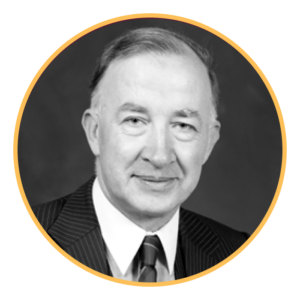
Alan McComas was an award-winning physician when he was recruited to McMaster’s medical school in 1971 as its first head of neurology. The neurophysiologist was a proud ambassador for the university as he became recognized internationally for his research on the neurophysiology of muscle disease. His method for the calculation of a number of viable motor units in muscle is considered the gold standard for this measurement. A captivating presenter, he was renowned as a mentor and extensively published. He was the chair of the Department of Biomedical Sciences from 1988 to 1993 before he retired as professor emeritus in 1996.
2014
Expandable List
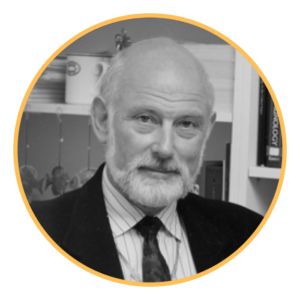
John Bienenstock, MD, is a renaissance man as a scientist, artist, administrator and visionary — and his ability to think outside the box has inspired a generation of scientists and clinicians. The Distinguished University Professor is recognized as a global authority on lung and gut and their interaction with the brain. From 1968 until after becoming professor emeritus of medicine and pathology in 1998, he forged the infrastructure for the Faculty’s robust research enterprise. He was vice-president and dean of the Faculty (1989-1997). The inductee of the Canadian Medical Hall of Fame is also a Member of the Order of Canada and a Fellow of the Royal Society of Canada.

Jonathan Lomas, MA, is known as the ‘father of knowledge translation’ for his groundbreaking research and his championing of the use of evidence to guide clinical practice and health system decision making. His tireless advocacy broadened and enhanced the impact of McMaster-spawned evidence-based medicine. A professor of health policy for the Department of Clinical Epidemiology and Biostatistics from 1982 to 1997, he was co-founder and a leader of the influential Centre for Health Economics and Policy Analysis. Lomas has consulted for international organizations and governments at all levels around the world. Among other honours, he is an Officer of the Order of Canada.

Raelene Rathbone, MD, PhD, is an exemplary role model as a physician, researcher and academic administrator. At McMaster from 1971 until becoming a professor emeritus of pathology in 2002, she was recognized internationally as a scientist for her contributions to research on platelet physiology. She was renowned too as an administrator for her sensitivity, mentorship, pragmatism and enthusiasm in her many roles. These included associate vice-president of the Faculty (1992-2000) and acting as associate dean for education, for research and as the Faculty’s dean and vice-president. She also played a key role in establishing the unified city-wide Research Ethics Board.
2015
Expandable List
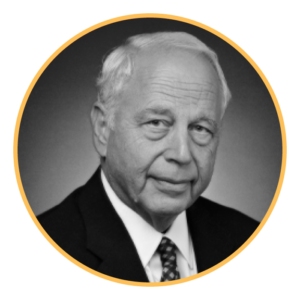
Peter Dent, MD, is a pediatrician dedicated to the health and well-being of children. Joining McMaster in 1968, he began as a clinician scientist with a research focus in cancer immunology and pediatric rheumatology. As the chair of the Department of Pediatrics (1981-1990), his stamina and political capability were key to the creation of the McMaster Children’s Hospital and the Ronald McDonald House for families of pediatric patients. During his final decade in administration (2002 to 2012), he served as the Faculty’s associate vice-president, clinical services where he worked to align university and hospital priorities. He has received top local, national and international awards for his achievements.
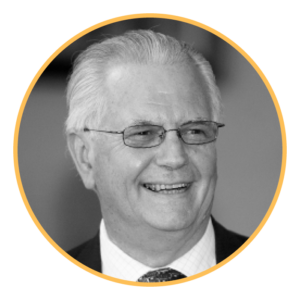
Jack Gauldie, PhD, is a world-renowned expert in the field of gene therapeutics, and best known for his contributions to mucosal immunology, cytokine biologyand the regulation of inflammation, fibrosis and tissue repair. He joined the Faculty in 1971 and continued a distinguished career of research, education and administration until 2015. Gauldie was designated as a Distinguished University Professorin 1998. While serving in many important roles, including chair of the Department of Pathology and Molecular Medicine (1989-2004), his outstanding leadership influenced the direction of research locally, provincially and nationally. Several generations of McMaster scientists count Jack Gauldie as their mentor and role model.
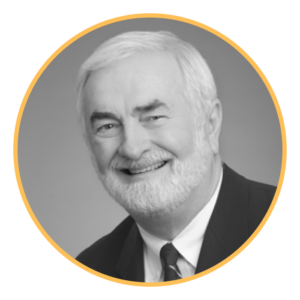
Peter George, PhD, had a significant impact on the Faculty’s success during his 15 years as McMaster’s president and vice-chancellor from 1995 to 2010. He encouraged the development of expanded and new programs in the Faculty. Some of these initiatives included the growth of the Michael G. DeGroote School of Medicine; the successful consortium built by the School of Nursingwith Conestoga and Mohawk colleges; and the launch of the Physician Assistant Education and Bachelor of Health Sciences (Honours) programs. He also encouraged the Faculty to seek philanthropic support which resulted in the formation of several institutes and the creation of dozens of endowed research chairs.
2016
Expandable List

Alba DiCenso was a national and international trailblazer in fostering the integration of nurse practitioners into the health care system, as well as advancing evidence-based nursing and health service and policy research. A McMaster nursing alumna, she joined the School of Nursing faculty in 1978. Known for her dedication and compassion, she spent a decade as the Chair in Advanced Practice Nursing increasing Canada’s capacity of nurse researchers, and for 10 years headed a consortium of six universities as the Director of the Ontario Training Centre in Health Services and Policy Research. She became a professor emeritus in 2013, and was inducted into the Order of Canada.


Mary Law has been pivotal in the advancement of academic rehabilitation science in Canada. While at McMaster from 1987 to 2015, she was co-founder of CanChild, a national, multi-disciplinary research centre which changed the approach to child disability research to include their families. From 2000 to 2010, as the associate dean, health sciences (rehabilitation), she established the School of Rehabilitation Science as a premier school, quintupling the research mandate while adding innovative programs including McMaster’s first online master’s degree. Called ‘an icon of her profession’ and noted for her determination, she received a lifetime award from the Canadian Association of Occupational Therapy and joined the Canadian Academy of Health Sciences.
2017
Expandable List


Brian Haynes is a founder of evidence-based medicine and a world leader in health informatics, whose invaluable contributions were characterized by his focus on small things making large differences. During his distinguished career at the Faculty beginning in 1977, he established the Health Information Research Unit in 1987; co-founded the Cochrane Collaboration in 1993; chaired the Department of Clinical Epidemiology & Biostatistics from 1998 to 2008, and served as a professor of medicine. He became a professor emeritus in 2016. Respected for his intelligence and generosity, contributions have improved clinical decision making and patient care worldwide. His many awards include Officer of the Order of Canada.
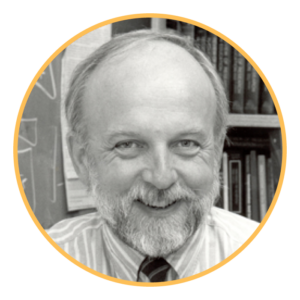
Geoff Norman is an internationally-renowned expert on problem-based learning in medical education. With a PhD in physics and subsequently a MA of Educational Psychology, his prodigious research output of more than 300 highly-cited papers broadened the understanding of the psychological basis of problem-based learning and the development of clinical reasoning. His enthusiastic mentorship fostered a generation of leading medical education researchers. He joined the Faculty of Health Sciences in 1970, led the Program for Educational Research and Development from 1999 to 2010, and was appointed professor emeritus of the Department of Clinical Epidemiology & Biostatistics in 2015. His honours include the prestigious Karolinska Award for Research in Medical Education.
2018
Expandable List

Heather Arthur was a renowned McMaster University nurse scientist. She was widely admired for her work in the field of cardiovascular research, and particularly for her development of interprofessional researchers and cardiovascular nurse scientists. An alumna of the McMaster School of Nursing, she joined the school’s faculty in 1981 and retired in 2013 as a professor emerita. Among her many awards, she was the first holder of the Heart and Stroke Foundation/Michael G. DeGroote Endowed Chair in Cardiovascular Nursing. Her remarkable impact was honoured with the creation of an endowed research chair in interdisciplinary health research in her name.

Michael Boyle is a prominent scholar in children’s mental health, and he has altered the landscape in care by highlighting the powerful developmental role and lasting impacts of socioeconomic status on children’s health. He joined the Department of Psychiatry and Behavioural Neurosciences in 1982, and retired as a professor emeritus in 2018. A leading researcher for the Offord Centre for Child Studies, his work on several large-scale studies, including the Ontario Child Health Study, provided the scientific impetus for early child development initiatives federally and provincially, while other studies had international impact. His exceptional abilities as a researcher, mentor and teacher made him greatly admired by students and colleagues alike.
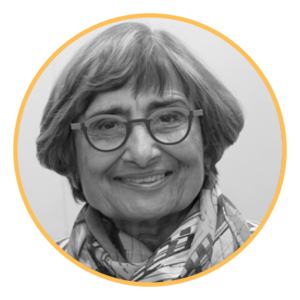
Saroj Saigal has been an international trailblazer in recognizing the potential of babies born weighing less than one kilogram. Applying solid research methodology with a focus on quality of life, and following the children for more than 30 years, her studies proved that outcomes are often much better than expected for these fragile infants. Her work has been emulated around the world. She began at McMaster University’s Department of Pediatrics in 1972, retired as a professor emerita in 2004 but continued as an active researcher for many years. In 2018, she became only the third Canadian to receive the prestigious Virginia Apgar Award from the American Academy of Pediatrics.
2019
Expandable List

Gina Browne has been a trailblazer in advancing evidence-informed innovations in care and service delivery for vulnerable populations. She became renowned as a distinguished researcher, scholar and educator while at the School of Nursing from 1971 until retirement as a professor in 2015. Dedicating much of her work to marginalized communities, mental health and chronic disease, she had a distinct talent for bringing together researchers, policymakers and community partners to develop and test integrated approaches to provide proactive and multisectoral care that improved lives of countless individuals and their families. Her approach has been applied across Canada and beyond. Among her awards is an honorary degree from Ryerson University.

Del Harnish had an immense capacity for disruptive and constructive innovation. A successful virologist, he became renowned as an educator and champion of inquiry-based, student-centred pedagogy. Joining McMaster in 1984, he was the Bachelor of Health Sciences Honours program’s founding assistant dean from 2000 to 2015, establishing its trail-blazing reputation and making it the most sought-after undergraduate program in the country. His leadership style was ambitious and idealistic, inspiring many. As vice-dean, undergraduate health sciences education from 2015 to 2018, he was a visionary leader in launching several collaborative cross-Faculty programs. He held several McMaster and national awards for curriculum development and was a 3M Teaching Fellow, Canada’s highest award for university teaching..

Malcolm Sears was an eminent clinician researcher in his native New Zealand when he joined McMaster as a professor of medicine in 1990. Over the next 29 years he made ground-breaking contributions as a researcher and clinician on asthma, with his research particularly focused on children. He was the founding director for the Canadian Healthy Infant Longitudinal Development (CHILD) Study, a comprehensive birth cohort study allowing evaluation of genetic, epigenetic, host and environmental factors and health issues, including food allergies, hay fever and asthma. His success was recognized with many awards including the Asthma Society of Canada lifetime achievement award and the 2016 J. Allyn Taylor International Prize in Medicine.
2022
Expandable List

Sue Baptiste, MHSc, is internationally known as a leader in educational innovation and faculty development. This was particularly for pioneering the development of problem-based learning (PBL) in her field of occupational therapy as the benefits of the approach were considered practice-changing. She also developed initiatives supporting the integration of internationally-trained occupational therapists to Canadian practice. She joined McMaster University as a lecturer in 1985 and retired as a professor emerita of rehabilitation science in 2018.She holds the McMaster President’s Award for Excellence in Teaching, the Teaching Award from the Ontario Confederation of University Faculty Associations and the President’s medal of the Canadian Association of Occupational Therapists.
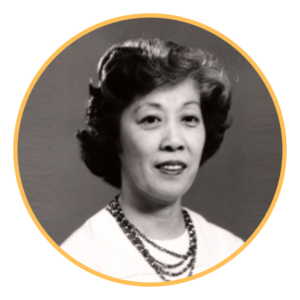
Irene Uchida, PhD, pioneered the field of cytogenetics in Canada. Her work led to the development of a test to detect early chromosomal abnormalities. She also discovered that Down Syndrome can be passed down by both parents. Her foundational work on the effect of x-rays on chromosome behaviour during pregnancy led to more cautious use of X-rays on pregnant mothers worldwide. She joined McMaster University in 1969 as a professor of paediatrics and pathology and retired as a professor emerita in 1985. She is remembered as an inspirational medical educator and trailblazer for women in science, and her clinical medical geneticist trainees went on to lead major genetics programs across the country. Her awards include being one of 1,000 Canadian Women of Note in Canada’s first century.

Stephen Walter, PhD, has been called Canada’s most distinguished and internationally recognised biostatistician, as he created many practical techniques of universal use in epidemiology and his hallmark was solving real-world problems. He joined what is now called the Department of Health Research Methods, Evidence, and Impact in 1982, and retired as Professor Emeritus in 2012. He was among the top highly cited scientists in the world, showing his influence on the work of others. He is also known for his flair for teaching and mentorship, having nurtured more than 100 graduate students. He is a Fellow of the Royal Society of Canada.
2023
Expandable List
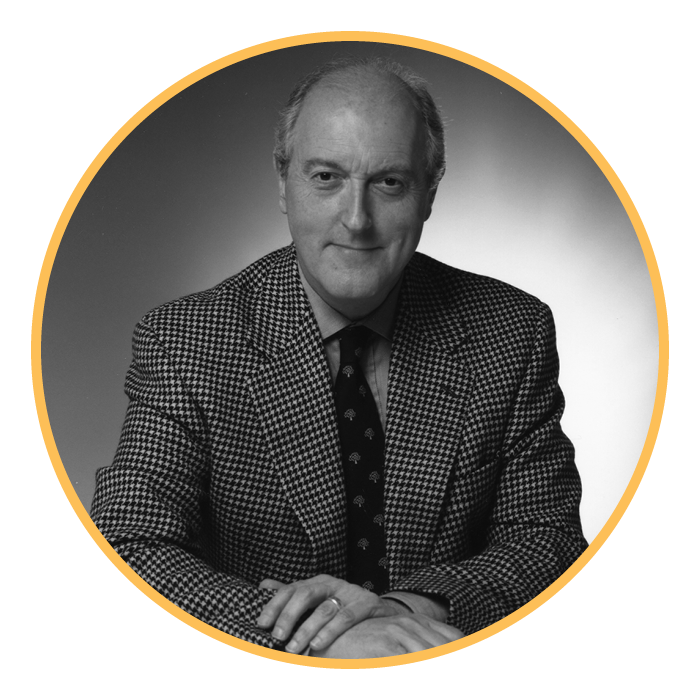
Ronald Barr has an international reputation based on his research and advocacy in child and adolescent health, particularly nutritional status, access to essential medicines, late effects of cancer treatment and measurement of health status and health-related quality of life in children with cancer in low- and middle-income countries. Dr. Barr joined McMaster University in 1977 and is a professor emeritus in the Department of Pediatrics, with an affiliation in the Departments of Pathology and Molecular Medicine and Medicine in the Faculty of Health Sciences. While at McMaster, he held several positions, including Director of the Division of Pediatric Hematology and Oncology and Chairman of the regional Hematology Program at McMaster and Hamilton Health Sciences.
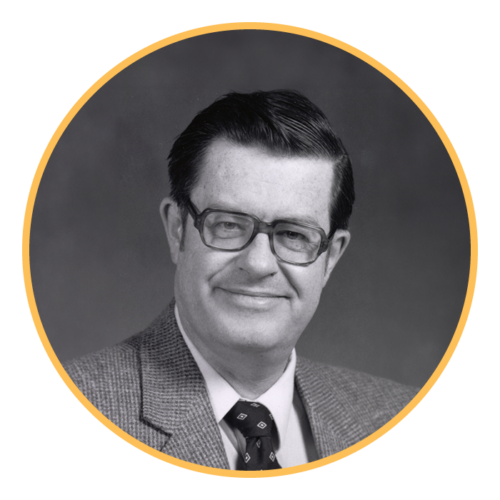

2024
Expandable List
Dr. Basanti Majumdar is internationally renowned for her research and teaching on HIV/AIDS, women’s empowerment, problem-based and self-directed learning methods. She earned her Bachelor’s and Master’s of Nursing degrees from Delhi University and later obtained an additional Master’s at McMaster and a PhD in Adult Education from Michigan State University. Her passion for enhancing the lives of marginalized communities and the socioeconomic determinants of healthcare traces back to her early years in India and was solidified during her time at Columbia University. As a Professor in the Faculty of Nursing at McMaster University, she organized international conferences in India, Thailand, South Africa, and Bangladesh, enabling local researchers to present their work and connect globally. Through these efforts, she strengthened ties between McMaster and ethnocultural communities, advancing research and education in developing countries.
